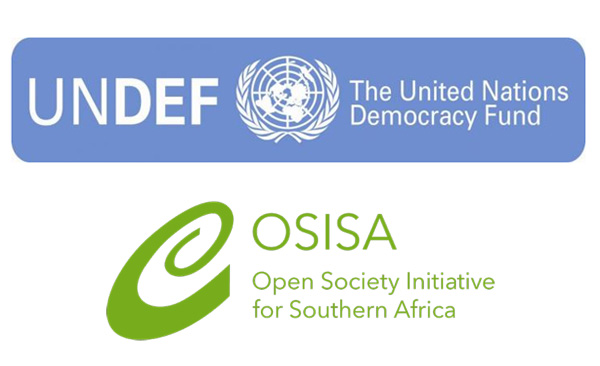The Centre for Human Rights (CHR), University of Pretoria, in collaboration with the Special Rapporteur on Freedom of Expression and Access to Information in Africa, Commissioner Pansy Tlakula, has commenced a two-year project entitled ‘Strengthening Legal Frameworks on Access to Information in Africa’. The project is for a period of two years (from 1 March 2013 to 28 February 2015)) and is being funded by the United Nations Democracy Fund (UNDEF), with additional funding from the Open Society Initiative of Southern Africa (OSISA).
As an element of good governance and democracy as well as a human right, access to information is vital in preventing arbitrary exercise of power by governments, strengthening democratic structures and processes, combatting corruption and mismanagement of national resources and promoting development. In recent years, the importance of public access to government-held information in fostering transparency, accountability, responsiveness and public participation in decision-making processes has increasingly been recognized. Evidence of this recognition is reflected in the fact that in the last twenty years, over 45 countries worldwide have adopted specific legal frameworks, setting out the processes and procedures for enforcing the right of access to information. In Africa, however, only ten States have adopted such access to information (ATI) laws, most of which are inadequate, as they do not comply with regional and international standards, and have proven expensive and difficult to implement.
The Project thus aims to strengthen the legal frameworks for the enforcement of the right of access to information at regional, sub-regional and national levels in Africa, using the recently adopted Model Law on Access to Information for Africa. The project would seek to integrate the Model Law into the existing legal framework of the African Union through the African Union Commission, the NEPAD/APRM process and the Pan African Parliament and at the sub-regional level, through the Regional Economic Communities. At the national level, technical support will be provided to assist 10 Member States with the adoption and implementation of access to information laws which conform to the Model Law.
Key activities to be undertaken under the project include: meetings withregional and sub-regional institutions and mechanisms namely: the African Union Commission (AUC), the African Peer Review Mechanism (APRM), Pan African Parliament (PAP), the Economic Community of West African States (ECOWAS), the East African Community (EAC) and the Southern African Development Community (SADC) to discuss the possible Integration of the Model Law into legal and institutional frameworks of these institutions; advocacy visits to 5 selected Member States of the African Union in the process of adopting ATI laws for the purpose of ensuring speedy adoption of ATI laws which comply with the with standards of the Model Law ; and capacity building activities for civil society organisations, public servants and institutions tasked with monitoring the implementation of ATI laws in selected Member States that have already adopted ATI laws.
